11 “Healthy” Habits That Are Making You Gain Weight
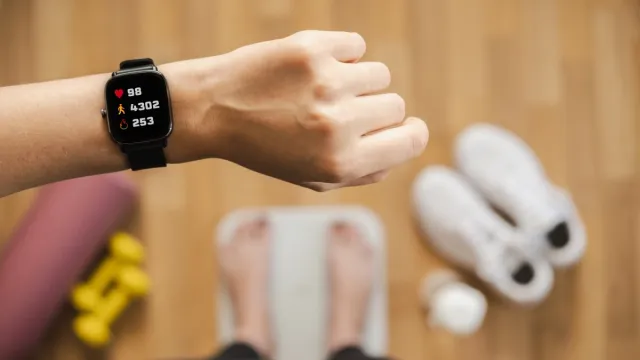
If you’ve been putting your best efforts into leading a healthy lifestyle but still find that it’s difficult to lose or maintain weight, you are not alone. This is a common reason that people throw up their hands and abandon their health routines altogether. Usually, when this happens, it’s because we’ve received a lot of mixed messages about what “healthy” habits look like. These distract and detract from the relatively simple practices that will almost always lead to weight loss—things like eating smaller portions, avoiding pre-packaged items in favor of whole foods, emphasizing plant-based nutrition, and working out.
But what, exactly, are the seemingly “healthy” habits that derail our health and weight-loss goals? Read on to learn the 11 mistakes you’re making that are sabotaging your hard work and making you gain weight.
RELATED: 4 Best Ways to Lose Weight (Without Using Ozempic).
1
Excessive juicing

While smoothies and juices made with plant-based ingredients can be a healthy addition to your diet, it’s important not to overdo it if you’re hoping to lose weight.
“Juicing can lead to a higher intake of natural sugars found in fruits, potentially spiking blood sugar levels and triggering hunger and cravings for more sugary foods,” explains Lisa Richards, a nutritionist and author of The Candida Diet. “Large volumes of juice can provide a concentrated source of calories, and people may underestimate the calorie content of their beverages.”
Richards adds that when fruits and vegetables are juiced, they also lose their fiber content, which is essential for promoting satiety and slowing down the digestion of sugars. “Consequently, the juice lacks the filling effect of whole foods, causing individuals to consume more calories without feeling full,” she tells Best Life.
2
Eating too many healthy fats
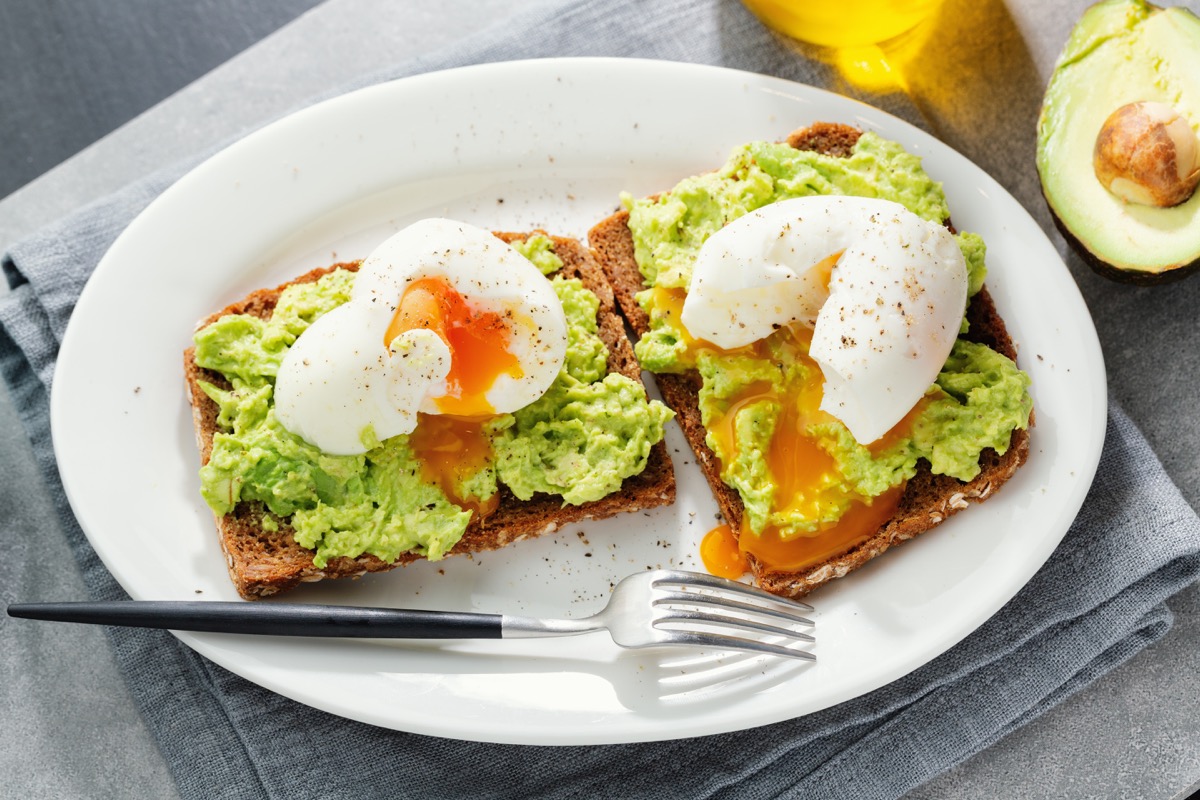
Healthy, unsaturated fats are an essential part of a balanced diet, leading to lower rates of disease and often aiding in weight loss. However, it’s still possible to gain weight from over-consuming these items if you eat them in large quantities or servings.
“While fats like avocados, nuts, and olive oil are nutritious, they are calorie-dense,” says Daniel “Bokey” Castillo, a licensed personal trainer, nutritionist, and the founder of Bokey Fit. “Consuming them excessively, even if they are healthy fats, can contribute to weight gain if you don’t account for the extra calories.”
RELATED: Your Hormones—Not Your Diet—May Be Making You Gain Weight, Doctors Say.
3
Frequently snacking on nutrient-dense foods
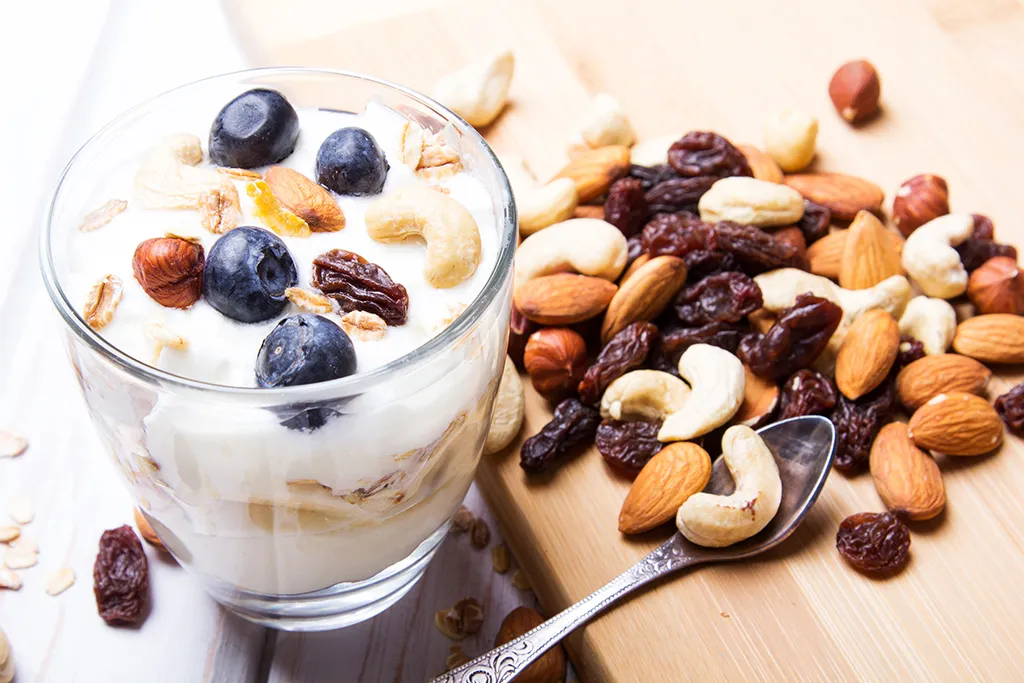
Another mistake people make when trying to lose weight is snacking too often on nutrient-dense foods. While you may be making sound nutritional choices, you could still be over-consuming.
“Snacking on fruits, yogurt, or nuts throughout the day can be healthy, but it can also lead to weight gain if you’re not mindful of portion sizes. Grazing on nutrient-dense snacks can add up in calories,” says Castillo.
4
Eating too many low-fat or diet products

Whether your goal is to lose weight or to improve your health through diet, one of the best things you can do is to avoid pre-packaged foods. This includes pre-packaged items that are billed as “low fat” or ones that claim to be diet-friendly.
“Pre-packaged low-fat or diet products often contain added sugars or artificial ingredients to compensate for the reduced fat content,” says Castillo. “Consuming these products in excess can lead to increased calorie intake and potential weight gain.”
RELATED: 5 Signs You Aren’t Eating Enough Leafy Greens, Nutritionists Say.
5
Excessively exercising without adjusting diet

If you maintain an unhealthy diet, no amount of exercise will undo that damage, Castillo says. “Regular exercise is crucial for overall health, but some individuals overestimate the number of calories burned during workouts. If you don’t adjust your diet accordingly, excessive exercise can lead to increased appetite and overeating, negating your weight loss efforts,” he explains.
Destini Moody, RD, CSSD, LD, a sports dietitian and a contributor to Garage Gym Reviews, agrees that this “healthy” habit frequently leads to weight gain. “You can’t out-exercise diet slip-ups. This is because exercise isn’t the primary driver of calorie burn and weight loss,” she says.
6
Going on fad diets

Fad diets may temporarily help you lose weight, but the vast majority of them ultimately fail to deliver long-term health or sustained weight loss.
“Research has shown us time and time again that when people go on fad diets, they tend to not stick with the diet long term and gain the weight back,” explains Michelle Saari, MSc, RD, a health and nutrition specialist at Health Canal. “My best advice for someone who is trying to lose weight in a healthy and long-term way is to find foods you love and exercise that you enjoy and can do consistently. Build your meals around protein, healthy fat, and fiber, and you will find yourself full for a longer time which can aid in weight loss.”
Saari recommends evaluating any new health plan with the future in mind: “Ask yourself, ‘Do I see myself doing this in 10 years? In one year?’ If the answer is no, then maybe you need to make some adjustments.”
RELATED: 9 Best Fitness Classes to Take If You’re Over 60, Experts Say.
7
Cutting out entire food groups

Moody points out that one common red flag of fad diets is that they seek to eliminate entire food groups from your eating plan. Though this strategy may work in the short term, she says it can ultimately backfire, leading to weight gain.
“The reason cutting out food groups is a flawed weight loss strategy is because it’s not a sustainable way to eat. If you love carbohydrates and are only willing to cut them out of your diet to reach a weight goal, the weight is very likely to come right back when you start eating carbs again. It’s not because carbohydrates lead to weight gain, it’s because the diet didn’t teach you how to balance your meals and control your portions, which is what actually leads to weight loss,” she explains.
8
Losing sleep to exercise

Working out can help you maintain a healthy weight—but you may be undermining the benefits if you have to sacrifice sleep to find the time for it.
“I get it, there are only so many hours in the day, especially for busy professionals,” says Moody. “However, robbing yourself of two to three hours of sleep in order to squeeze in your gym sessions is also not the solution. That’s because studies have shown people who consistently get less than seven hours of sleep weigh more on average.”
Moody explains that this is likely because sleep deprivation increases the levels of your hunger hormone, ghrelin, which causes you to overeat during waking hours. “Getting too little sleep also increases cortisol, your stress hormone, and the more cortisol you have in your system, the more fat your body holds onto, making it much more difficult to burn off even with a sensible diet and exercise program,” she notes.
RELATED: 6 Best Walking Workouts for Weight Loss.
9
Restricting to make up for diet slips
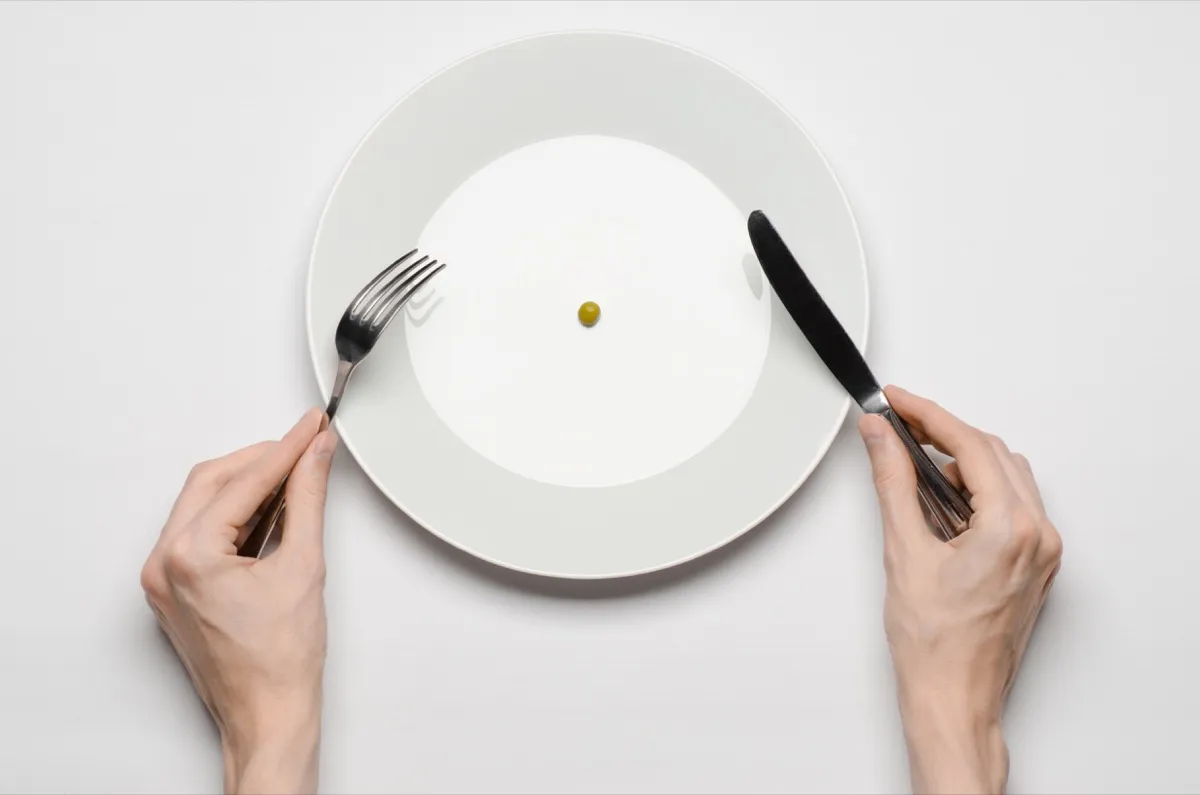
Many people think it’s healthy to compensate for diet slips by restricting the next day. However, Joanna Wen, a health coach and the founder of Spices and Greens, says that rather than successfully balancing out your mistake, this can set you up for an unhealthy pattern of yo-yo dieting.
“This can lead to a cycle of binging and restricting, which can ultimately lead to weight gain,” she says.
10
Opting for vegan versions of junk food
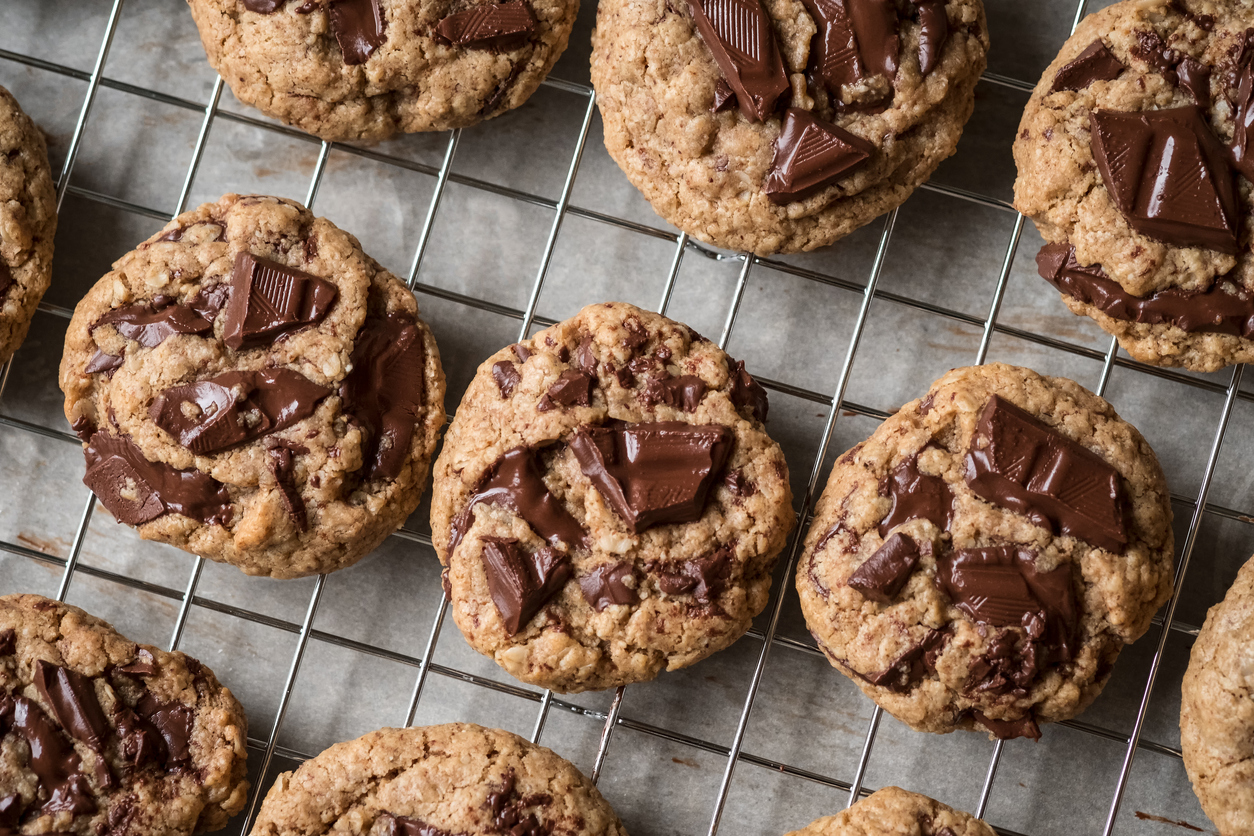
While you can certainly lose weight on a vegan diet, the experts say that vegan versions of junk food are often still just that—junk.
Moody admits that “amazing things are happening in the world of food science” and many vegan options are worth exploring. However, you should stop short of equating “vegan” with “healthy.” Any pre-packaged foods should be viewed with a healthy dose of nutritional scrutiny before you add them to your everyday eating routine.
11
Drinking diet soda
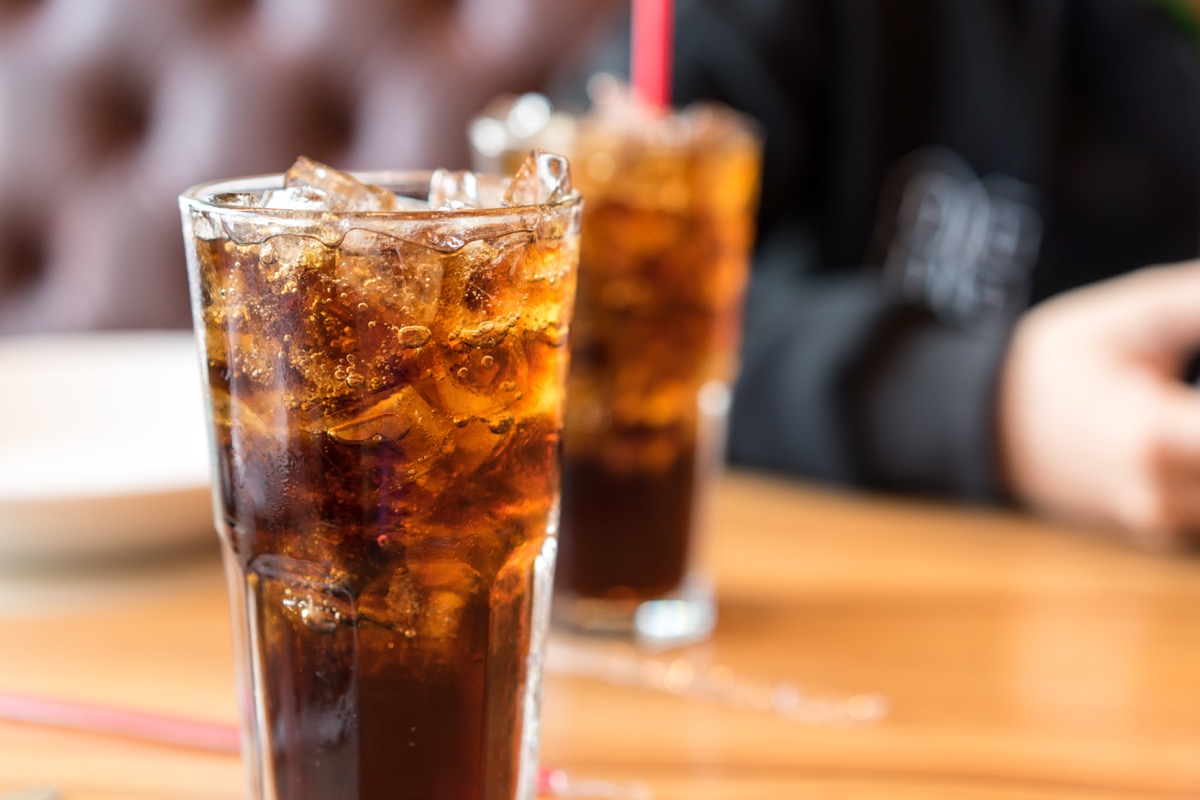
Diet soda may seem like a healthier alternative to sugar-packed pop, but experts say that these beverages can actually trigger cravings for more sweet flavors. Despite diet sodas being calorie-free, this can ultimately lead to overeating throughout the day.
“Some research suggests that your brain reacts to artificial sweeteners much like it does to sugary sweets,” explains the Cleveland Clinic. “Ingesting them frequently may increase your desire for high-calorie foods, putting you at a greater risk of weight gain.”
For more wellness and weight loss tips sent directly to your inbox, sign up for our daily newsletter.
Best Life offers the most up-to-date information from top experts, new research, and health agencies, but our content is not meant to be a substitute for professional guidance. When it comes to any health questions you have, always consult your healthcare provider directly.